RE is a discipline that is forever changing and cannot be taught in a static manner. Therefore, our curriculum is research informed and also adapted to ensure that it is reflecting our ever changing and diverse world. Unlike other subjects learning in RE is not defined on a national context (despite specifications), and so we closely incorporate the suggestions and recommendations of the Standing Advisory Council on Religious Education (SACRE -approved by the local authority), National Association of Teaching Religious Education (NATRE), as well the Ofsted Research Reviews.
Nationally, there is a need for RE curriculums to ensure that students are aware of the importance of religious and non-religious approaches in the UK and on a wider global context. To do this the SACRE, NATRE and Ofsted Research Reviews highlight the need for the following:
- Students are taught about a range of worldviews
- Students are provided with an enriched and in- depth curriculum that allows them to develop substantive knowledge, ways of knowing and knowledge in regard to personal development.
- Students are taught about the Universal Values and how this is consistently linked with religion.
- Students can eloquently express and articulate their views in a convincing manner whilst also acknowledging other opinions as well.
- Students understand, appreciate and respect the role of contrasting beliefs and views in a multi-faith and multi-cultural society
RE at MUTC
Students may join Mulberry UTC (MUTC) at either KS4 or KS5. When a students’ learning journey begins in KS4, they will study GCSE RE as a compulsory option prior to moving onto their KS5 pathways.
Students have various start points in GCSE RE. For many students, they may have studied RE at KS3 Level and for others, this may be their first experience of studying RE. Although many may have studied RE at KS3, variations in teaching and timetabling will mean that they have various levels of knowledge and understanding. For example, some may have studied RE on a weekly basis, and some may have studied this as part of a carousel. For many other students, they may have studied other Humanities or Social Science subjects at KS3 which may allow them to establish some cross-curricular links. For example, students who may have studied humanities subjects such as Citizenship or KS3 History. Students may also have explored either substantive, ways of knowing or personal knowledge through PSHE sessions as well.
As a result, learning is carefully sequenced and planned to ensure that all students can explore their own personal knowledge as a starting point prior to beginning their journey of grasping substantive knowledge. For example, the first lesson which is an Introduction to GCSE RE allows students to reflect on their own viewpoints and experiences prior to learning content.
Our RE curriculum at Mulberry UTC aims to develop students’ awareness and understanding of both religious and non-religious viewpoints and worldviews. Students study this at KS4 and explore Christianity and Islam, focusing on core beliefs, practices, and ethical issues. Students also explore alternate worldviews such as Humanism as well as non-religious and scientific ideas too. The RE curriculum will encourage our learners at MUTC to develop lifelong responsibility, tolerance, and respect for all aspects of diversity, whether it be social, cultural, or religious.
As a department, we have a rich carefully sequenced curriculum which intends engages, inspires, and encourages our pupils to be holistic learners. We aim to equip our learners with the knowledge and skills to answer challenging questions. Studying Religious Education enables pupils to ask deep and often searching questions about their own faiths and beliefs, and the beliefs, faiths, and opinions of others regarding pertinent contemporary moral issues. For example, when studying the Matters of Life and Death unit in Year 10, key topics such as abortion and Euthanasia are visited. In Year 11, students will explore religious and non-religious perspectives on ideas such as Weapons of Mass Destruction and Jihad.
What will students learn?
The Learning journey at KS4
In KS4, students study the Edexcel B (1RB0) qualification. Students have various starting points. Where some students may have a greater level of knowledge and understanding due to personal knowledge, others may not. Furthermore, as mentioned earlier, but students may have studied RE or even explored elements of this as part of standalone PSHE, history or citizenship lessons in their prior schools too.
YEAR 10:
Paper 1: Religion and Ethics:
- Christian Beliefs
- Marriage and Family
- Living the Christian Life
- Matters of Life and Death
In Year 10, students learn the above units. Learning is sequenced to ensure that students can gain and build on both new and pre-existing learning and knowledge. For example, in the Christian Beliefs unit, students are taught knowledge that will form the foundation for learning in other topics. Key concepts such as atonement, salvation, original sin and many more are taught as a building block prior to students learning about the other topics. This will allow students the opportunity to apply key ideas towards other topics too. For example, by learning about original sin and salvation in Christian beliefs allows them to understand Baptism which they study in Living the Christian Life.
Other topics also have links across them as well which allow students to critically analyse and explore themes and issues. For example, the sanctity of life argument and abortion is explored in Matters of Life and Death and the importance of family life and having children to spread the Christian faith is studied in Marriage and Family.
YEAR 11:
Paper 2: Religion, Peace and Conflict
- Muslim Beliefs
- Crime and Punishment
- Living the Muslim Life
- Peace and Conflict
In Year 11, students will focus on Islam and compare this with non-religious viewpoints once again. As in the previous year, students will have the opportunity to develop the key conceptual knowledge and foundational framework needed when they study the Beliefs unit. They also then can apply this to other topics. For example, when exploring beliefs about Akhirah (life after Death), students will then understand the importance of key Muslim practices like Prayer (Salah), Fasting (Sawm) and pilgrimage (Hajj) and others.
The topics also interlink across the two other topics as well. For example, when studying Crime and Punishment students learn about the importance of justice and equality. Such themes are also looked at when they explore peace and peace-making when they study the Peace and Conflict Unit.
Overall, there are also several themes and knowledge that overlap between both prior learning in Year 10 (paper 1 content) and new content gained in Year 11 (paper 2). For example, subject specific terminology when studying the Nature and Qualities of God in both Islam and Christianity. Furthermore, similarities are drawn when they explore themes like evil and suffering, life after death and the role of the family.
The different types of knowledge- Substantive, Personal knowledge, and ways of thinking
All units focus on the three types of knowledge identified by the Ofsted Research Reviews (April 2024) in many ways. For example. substantive knowledge is taught when students are learning new content about Islam and Christianity, as well as when they compare with Humanist and Nonreligious viewpoint. Whereas opportunities for personal knowledge are incorporated when students are asked to reflect on their own personal beliefs and viewpoints. For example, when studying about the qualities of God (for both Islam and Christianity), students reflect on their own personal knowledge, regardless of whether they believe in God or not. Furthermore, ways of knowing are also embedded throughout when students learn about various sources of authority and wisdom. For example, students learn about how we know about religion through key religious figures and sacred texts. Furthermore, they also explore ways of knowing for non-religious viewpoints when they explore some scientific ideas such as the Big Bang Theory and Evolutionary Theory too.
How do we assess students and help them to improve?
Prior learning and knowledge are revisited every lesson by way of the retrieval starter activity, whiteboard quizzes and mini plenaries. Lessons also incorporate opportunities for peer and self-assessment. Many lessons also offer opportunities for live marking, and this is used to model how students should meet Assessment objectives. Whole class marking of exam practice is also embedded using a visualiser or a visualiser tool such as Microsoft Lens.
In the curriculum plan students also have a midpoint feedback task every three weeks in which they receive detailed whole class feedback. In addition to this, students have end of topic checks for knowledge through tests and essays as well as the traditional mock examinations.
Students are allocated time in lessons to act on feedback to ensure this is meaningful. Students may also be set additional tasks outside the classroom, and this would be based on feedback, and so will either consolidate or develop learning.
Revision lessons are also planned in every topic to allow students to revisit and address any gaps or misconceptions in prior knowledge. Clear HW tables and revision plans will also be implemented and will be as diagnostic to the learners needs as well.
How will we ensure that the needs of SEND learners and high achieving learners are met?
In RE, various tools and techniques are used to ensure that the needs of all learners are being met. For example, seating, teacher circulation and questioning are differentiated to both support and challenge learners. This differentiation also fits in neatly with the no opt out option in lessons as well. Furthermore, students may have lesson resources printed in addition to challenge resources.
Students with SEND will also be supported in the aforementioned manner as well as being provided with a task plan. The Task plan clearly breaks down the lesson for students and is a visual aid and reminder for learners who may process to organise learning and process large amounts of information.










